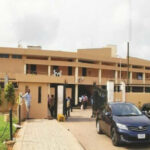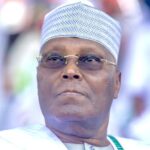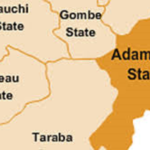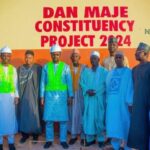
On the day President Buhari left for London on yet another recklessly wasteful “10-working-days holiday” in the UK, I tweeted that Nigeria would again have another chance to feel the symbolic presence of leadership.
I was proven right a few days later in the aftermath of the audacious, primitive, ironclad strangulation of the legislature by masked operatives of the Directorate of State Service (DSS). Vice President Yemi Osinbajo’s swift action in halting this criminal show of shame earned him praises even from critical quarters and dramatized what his boss, Buhari, lacks: leadership.
In my March 12, 2017 column titled “What Buhari Should Learn from Osinbajo,” I observed: “In a tragic irony, it took Buhari’s sickness for Nigeria to get a chance at some health. It also took his absence for the country to feel some presence of leadership. Why did it take the ascendancy of Osinbajo to the acting presidency for this to happen? The answer is simple: symbolic presence.”
Osinbajo demonstrated not just symbolic presence but also substantive political presence in the wake of the embarrassingly unconstitutional blockage of the National Assembly by minions of the executive branch of government. That is why anyone who gives credit to Buhari for the firing of former DSS boss Mamman Lawal Daura is being disingenuous. It was entirely Osinbajo’s initiative, which may (or may not) put him at odds with Buhari. Recall that Buhari reversed Osinbajo’s endorsement of the suspension of former NHIS Executive Secretary Prof. Usman Yusuf who was under investigation for an alleged N919 million fraud. His recommendation for the prosecution of Babachir Lawal and Ayodele Oke has also been ignored.
Nor is this the first time law enforcement agents loyal to the executive arm of government have violated another independent branch of government. In 2016, while Buhari was in the country, the same Lawal Daura-led DSS illegally invaded the homes of judges at night. It was a rape of democracy, which attracted mass outrage and condemnation. Buhari didn’t issue a statement, let alone censure Lawal Daura. Now that Osinbajo had the testicular fortitude to do what a real president should do, government justifiers are saying the credit for Osinbajo’s decisiveness should go to Buhari.
But when the Inspector General of Police openly disobeyed Buhari’s instruction to relocate to Benue to contain the heartrending bloodletting in the state, nothing happened to the IGP. Kemi Adeosun forged an NYSC certificate and outraged the moral sensibilities of the nation. Not a word has been heard from the presidency up to now. Okoi Obono-Obla, one of Buhari’s points men in the “war against corruption,” has been conclusively shown to have forged his school certificate. The House of Representatives has even officially recommended his firing and prosecution. Nothing has been heard from Buhari.
Former Secretary to the Government of the Federation Babachir David Lawal fleeced internally displaced people in the northeast of millions of naira. Buhari actually wrote in his personal capacity to defend and exonerate him! It took the same Osinbajo who fired Daura this week to recommend Lawal’s firing. Yet Lawal is still a denizen of the Presidential Villa, hasn’t been prosecuted, and is, in fact, Buhari’s reelection campaign coordinator in Adamawa State as I write this. The examples are almost limitless.
Even APC chairman Adams Oshiomhole was compelled to admit during a July 23, 2018 tirade against Labor Minister Chris Ngige that Buhari “condones disrespect for his office,” which was a pleasant way to say that the president is an incompetent, aloof leader.
Buhari has NEVER taken any action against his corrupt, incompetent aides (because he is indistinguishable from them), but whenever his deputy, Osinbajo, takes a decisive action that attracts praise, supporters of the president never fail to say Osinbajo did it with Buhari’s “approval” and that the credit should go to Buhari.
Why does Buhari always have to give “approval” for his deputy to act in the national interest while he himself takes no such actions whenever he is in the country? First, that reasoning undermines the idea that we have an acting president with all the constitutional powers to take independent decisions on behalf of the president. If the acting president can’t take independent decisions, then he is no acting president.
Second, it confirms that Buhari is indeed a weak, ineffectual leader if the most decisive actions in his administration are taken by his deputy only when he is away from the country. The truth, of course, is that Buhari’s trajectory in the last three years has shown that Osinbajo’s praiseworthy decisions are taken not because of Buhari but IN SPITE of Buhari.
But the issue at point isn’t even about whether or not Osinbajo gets Buhari’s “approval” to do the commendable things he does when Buhari is away. Of course, I expect that Osinbajo would give his boss the courtesy of seeking his approval before taking actions on behalf of the president. Nevertheless, what is celebrated about Osinbajo-and what early supporters of Buhari like me wanted from Buhari–is his courage to do the right thing at the right time. If Buhari hadn’t lowered the bar of governance so miserably, Osinbajo’s action would merely be a routine duty that wouldn’t be worthy of acclamation.
Buhari is, without a doubt, an absentee president in both symbolic and physical terms. That’s a nice way to say he is a detached president who watches blithely as everything around him crumbles, as the nation groans and burns under the weight of his unprecedented ineptitude. And that’s why it takes his physical absence for the country to have a chance to see a semblance of the presence of leadership.
Had Buhari been in the country during the raid on the legislature, we wouldn’t have heard anything from the presidency much less seen a swift action. At best, we might have gotten one of those dishonest, mealy-mouthed prevarications called presidential press releases. At best, we would be told that the president was not “aware” of what had happened. At worst, we would be greeted with the condescending silence that has become the style mark of the Buhari presidency. That’s not how to lead a country.
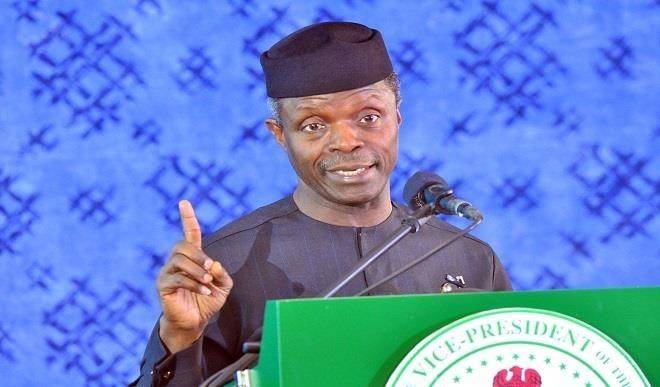
 Join Daily Trust WhatsApp Community For Quick Access To News and Happenings Around You.
Join Daily Trust WhatsApp Community For Quick Access To News and Happenings Around You.